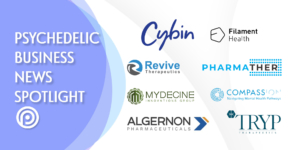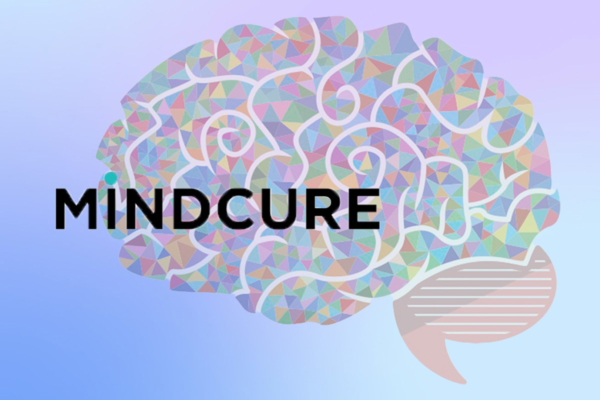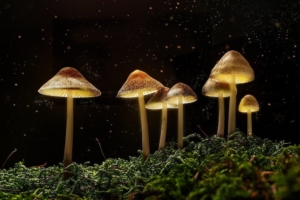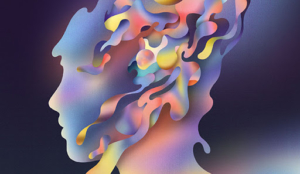
Psychedelics will have a big presence at the SXSW Conference in 2022.
At least five panels in the Health & MedTech Track will be devoted to the increasingly popular topic, and other panels may very well intersect with psychedelics as we’re seeing other industries beyond pharmaceuticals embracing the possibilities that psychoactive substances may offer society.
Although SXSW is perhaps more commonly known for its comedy, music, and film festivals at the Austin, Texas event running from March 11 – 20, the conference unites professionals from various fields to discuss the most important breakthroughs in technology, film, culture, and music. The Health & MedTech Track, one of 15 tracks that attendees can explore in person or online, consists of 32 sessions in various formats. It’s an area of focus that has seen huge growth at SXSW in recent years, according to organizers, who describe the overall theme as how social and technological changes are impacting health care, which is one of the world’s largest industries.
The track’s one and only “featured session” — special conference events that bring together some of the biggest and brightest names of our time — is called Psychedelics and Therapeutics for Well-being. It will feature podcaster, author, and investor Tim Ferriss alongside psychedelic research pioneer Roland Griffiths, who leads the Center for Psychedelic and Consciousness Research, as well as Yale psychiatrist Dr. John Krystal, whose laboratory discovered the rapid antidepressant effects of ketamine in humans, and psychologist Rosalind Watts, who facilitated over 100 psilocybin treatment sessions as the former Clinical Lead of the Psilocybin for Depression trial at Imperial College London.
Together, they’ll dive into the burgeoning field’s biggest questions. The description of the event reads:
What was once considered a recreational activity is now an evidence-based treatment for psychiatric disease. But how can psychedelics be widely used to alleviate human suffering through clinician-guided treatment of illnesses such as depression, PTSD, and addiction? Do mystical-type and insightful-type experiences associated with these substances improve overall well-being in patients and in healthy individuals? How can investors make psychedelic medicine accessible by financing academic research and for-profit companies and clinics? What is next for the 21st century renaissance of psychedelic medicine as it becomes an established treatment and wellness aid?
Take a look at the rest of the panels with their descriptions below, and click the link to learn more, including who will be speaking.
The Ethics of Mainstreaming Psychedelics
We’re at a pivotal moment in psychedelic history. The interest in psychedelics among the general population is growing exponentially. Meanwhile, hundreds of millions of dollars are pouring into psychedelic drug development, with some projecting the industry is less than five years behind cannabis. But psychedelics aren’t just any other industry. Since they’ve been used ceremonially for millennia, the industrialization of these powerful compounds brings up unique ethical considerations. What does it look like to create a psychedelic “industry” that’s truly inclusive? How can we engage in reciprocity and uphold reverence for the Indigenous stewards of psychedelic plants and fungi? And should anyone be profiting from psychedelics at all?
The Psychedelic Investment Opportunity: Separating the Posers from the Pioneers
Psilocybin, ketamine, MDMA, LSD and mescaline are creating a new paradigm in wellbeing, and investors are taking notice. With the inflection point for psychedelic science here, savvy investors are eager to weed out the posers from the pioneers, particularly given the rapid rate at which the regulatory landscape, cultural attitudes and research are evolving. But, fear not. We’ve assembled some of the brightest financial minds from across the psychedelic ecosystem to help you easily identify get-rich-quick schemes from actionable investment opportunities.
Psychedelics: Has Nature Given Us All We Need?
Is Mother Nature’s psychedelic toolkit of naturally occurring compounds such as psilocybin, DMT, 5-MeO-DMT and mescaline sufficient as therapies for the emerging psychedelic healthcare movement? Or is there ample room for improvement with “Generation 3” compounds that are are inspired by existing psychedelic scaffolds but nonetheless man-made, synthesized in a lab and potentially more commercially viable? There’s an ongoing debate between pure plant-derived medicine vs. chemically synthesized compounds and which has better therapeutic potential to address mental health disorders and other conditions. This panel seeks to address many of these hot button issues and provide a mechanistic and pharmacological perspective on psychedelic compounds and their analogues.
Trip Planning: Psychedelics and Digital Therapies
Two of the most important recent innovations in mental health have been 1. the emergence of digital approaches and 2. the resurgence of scientific interest in the role of psychedelics. Also, these two approaches may have significant synergy. Because psychedelic treatment involves a limited dosing period that can have varying clinical outcomes, digital tools may be especially useful for tracking clinical responses to determine ongoing care. Second, evidence suggests that psychedelic treatment may create a window of brain plasticity when new learning can occur. Digital therapies could optimize this learning by helping to promote positive changes during this sensitive period. Our panel will explore these opportunities with experts in digital mental health and modern psychedelic science.





